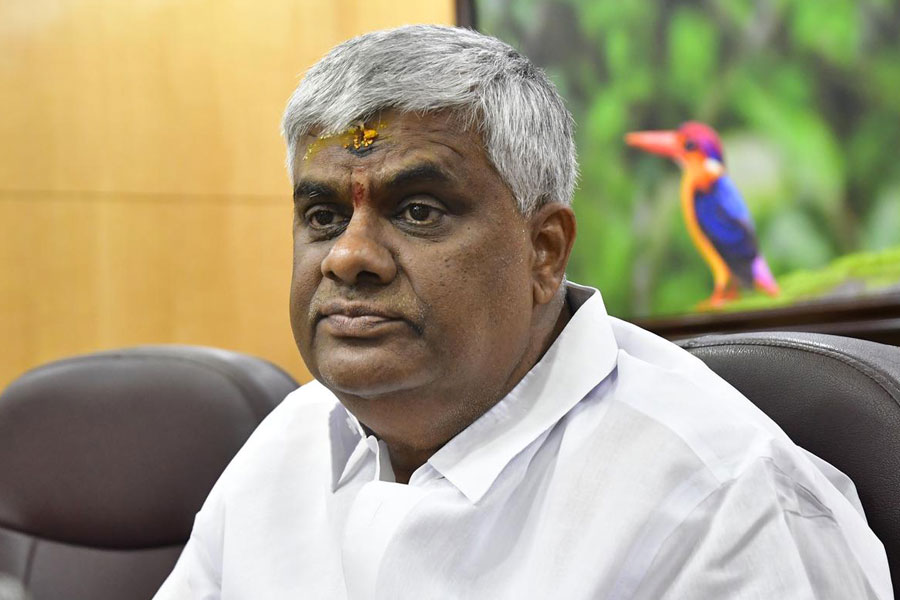Childish tantrum
Sir — It is not surprising that women are increasingly choosing to opt out of motherhood. Societal expectations of mothers have failed to keep pace with evolving gender roles. Onomochi, a Japanese city, recently distributed flyers to pregnant women, advising them about what their husbands expect from them after they give birth. Besides taking care of their infants and doing domestic chores, the expectations included giving massages to their husbands and thanking the menfolk in case they take care of the babies. What the flyer clearly failed to mention was the fact that husbands are the real children. The flyers — allegedly the wisdom of an “experienced dad”— sounded more like the demands of an overgrown manchild.
Sritama Laha, Calcutta
Take responsibility
Sir — It is disheartening that the Centre and several state governments needed to be reminded by the Supreme Court about their failure to take steps to reduce mob violence against marginalised communities. In Tehseen S. Poonawalla versus Union of India (2018), the court had held that it was the State’s duty to protect its citizens from vigilantism. Yet, the Bharatiya Janata Party government at the Centre seems to patronise such vigilantism. The Supreme Court, therefore, rightfully held the respective governments accountable for non-implementation of the 2018 verdict. But the State alone is not responsible. People need to be sensitised about forming fraternal relations among communities.
G. Champa, Patna
Mum’s the word
Sir — The prime minister, Narendra Modi, hosted the 103rd episode of his talk show, Mann Ki Baat, on Sunday (“The mike mess-iah”, July 31). He addressed several issues other than the ethnic clashes in Manipur. Despite repeated entreaties by the Opposition, Modi has maintained a stoic silence on Manipur. India has descended into anarchy — be it in the form of violence against women and lynching of people from minority communities or through felicitations of rapists — during Modi’s tenure as the head of the country. Peace may be restored in Manipur only if the Bharatiya Janata Party is thrown out of power.
M.T. Farooqi, Hyderabad
Sir — The prime minister managed to address a wide range of issues on his radio show but skirted around the topic of Manipur. He repeatedly used the words, “mera desh”, despite remaining silent on Manipur. This raises an important question: does he even consider Manipur to be a part of his country?
H.K. Isha’ati, Mumbai
Timely opportunity
Sir — India needs to emerge as an alternative and trustworthy market for critical industries such as that of semiconductors. Narendra Modi’s announcement of providing 50% financial assistance to technology firms that establish semiconductor-manufacturing facilities within the country is thus an important move for the Indian economy.
The semiconductor industry is the backbone of the technological sector. India has the potential to host several foreign players from the semiconductor industry to manufacture in India. If India succeeds in becoming a semiconductor hub, it will be a viable alternative to China, one of the market leaders in this business.
Bishal Kumar Saha, Murshidabad
Sir — Technological advancements are only possible with support from both the scientific community as well as the administration. One can hope that India’s position in the semiconductor industry will be bolstered by the recent incentives announced by the government.
The Centre must improve the ease of doing business in the country along with investing in research and development. It should not hesitate to take equity stakes in building a semiconductor industry that can function as a national asset.
Arka Goswami, Burdwan
Sir — The prime minister’s decision to extend financial assistance to firms that are setting up semiconductor-manufacturing facilities in the country is remarkable. India must utilise this opportunity to invest in this rapidly growing industry. Hopefully, the semiconductor industry will make use of India’s large working-age population and its market.
Karan Singh, Alwar, Rajasthan
Screen love
Sir — Teachers are rightly worried about the addiction of schoolchildren to mobile phones, a trend that saw a sharp rise during the pandemic (“Schools raise concerns about phone addiction”, July 30). Although phones initially helped children access online classes, students now waste time on them by simply watching videos or playing games. This affects their academic concentration. Parents should take charge of reducing children’s screen time.
Shyamal Thakur, East Burdwan
Equal rights
Sir — The equal participation of women in society, especially in leadership roles, is important to meet the Sustainable Development Goals by 2030. Data show that women are underrepresented in both public and private institutions worldwide, including governing bodies and political parties. Despite proving their mettle as leaders, women are denied their rightful place. Governments and businesses must address and overcome this by focusing on women’s empowerment.
Jayanthi Subramaniam, Mumbai
Costly alternative
Sir — A recent study shows that vegans have just 30% of the dietary environmental impact as that of ‘high-meat eaters’. Yet, given the vagaries of climate change and the resultant impact on agriculture, this lifestyle might be rather expensive even if one eats only indigenous food.
Amit Brahmo, Calcutta










